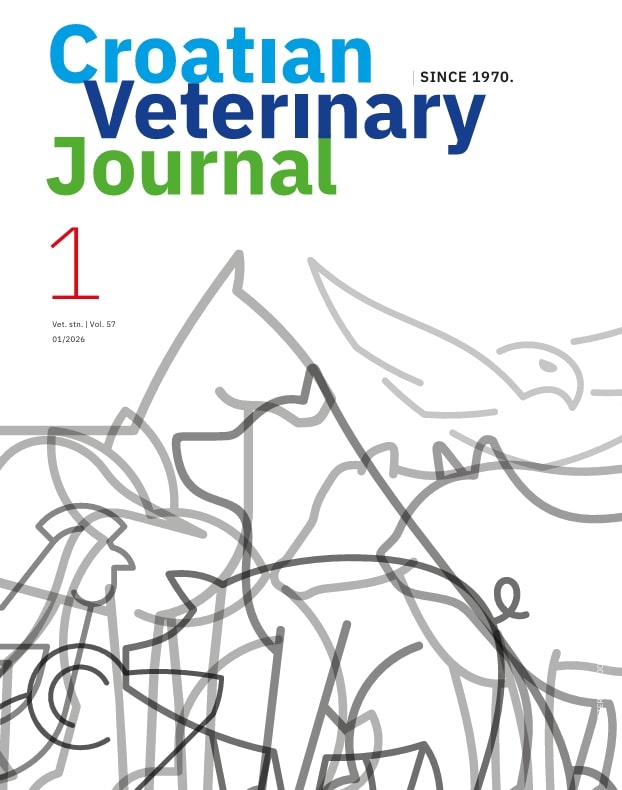Estimation of heritability for early weights in Santa Inés sheep from Brazil and Colombia
DOI:
https://doi.org/10.46419/cvj.57.1.9Keywords:
heritability, R Studio, Bayesian inference, birth weight, weaning weightAbstract
Knowing the heritable fraction of productive traits, such as birth weight and weaning weight, is an indispensable tool for selecting animals with higher genetic merit, facilitating decision-making in crossbreeding programmes. This study aimed to genetically evaluate populations of Santa Inés sheep in Brazil and Colombia using Bayesian inference analysis. The study was conducted using information from three sheep farms. The first was located in the Municipality of La Ceja, Antioquia (Colombia), the second in the municipality of Barbosa, Antioquia (Colombia), and the third in the municipality of Campo Santana (Brazil). The model included the additive genetic effect and maternal genetic effect, and considered sex, delivery type, and contemporary group as fixed effects. Components of variance and genetic parameters were estimated. The mean and standard deviation for birth weight (BW) and weaning weight adjusted to 90 days (WW90) were 3.36 kilograms (kg) ± 0.8 and 3.19 kg ± 0.861 for Brazil, and 7.76 kg ± 4.76 and 20.18 kg ± 5.31 for Colombia. The mean of direct heritability (h²d) of BW and WW90 was 0.31 and 0.27 for Brazil, and 0.61 and 0.30 for Colombia. It can be concluded that it is essential to keep accurate records at all sheep farms to ensure a good selection of animals for breeding programmes, to ensure animals with greater genetic and productive potential.
Downloads
Published
Issue
Section
License

This work is licensed under a Creative Commons Attribution 4.0 International License.
You are free to:
Share — copy and redistribute the material in any medium or format for any purpose, even commercially.
Adapt — remix, transform, and build upon the material for any purpose, even commercially.
The licensor cannot revoke these freedoms as long as you follow the license terms.
Under the following terms:
Attribution — You must give appropriate credit , provide a link to the license, and indicate if changes were made . You may do so in any reasonable manner, but not in any way that suggests the licensor endorses you or your use.
No additional restrictions — You may not apply legal terms or technological measures that legally restrict others from doing anything the license permits.

